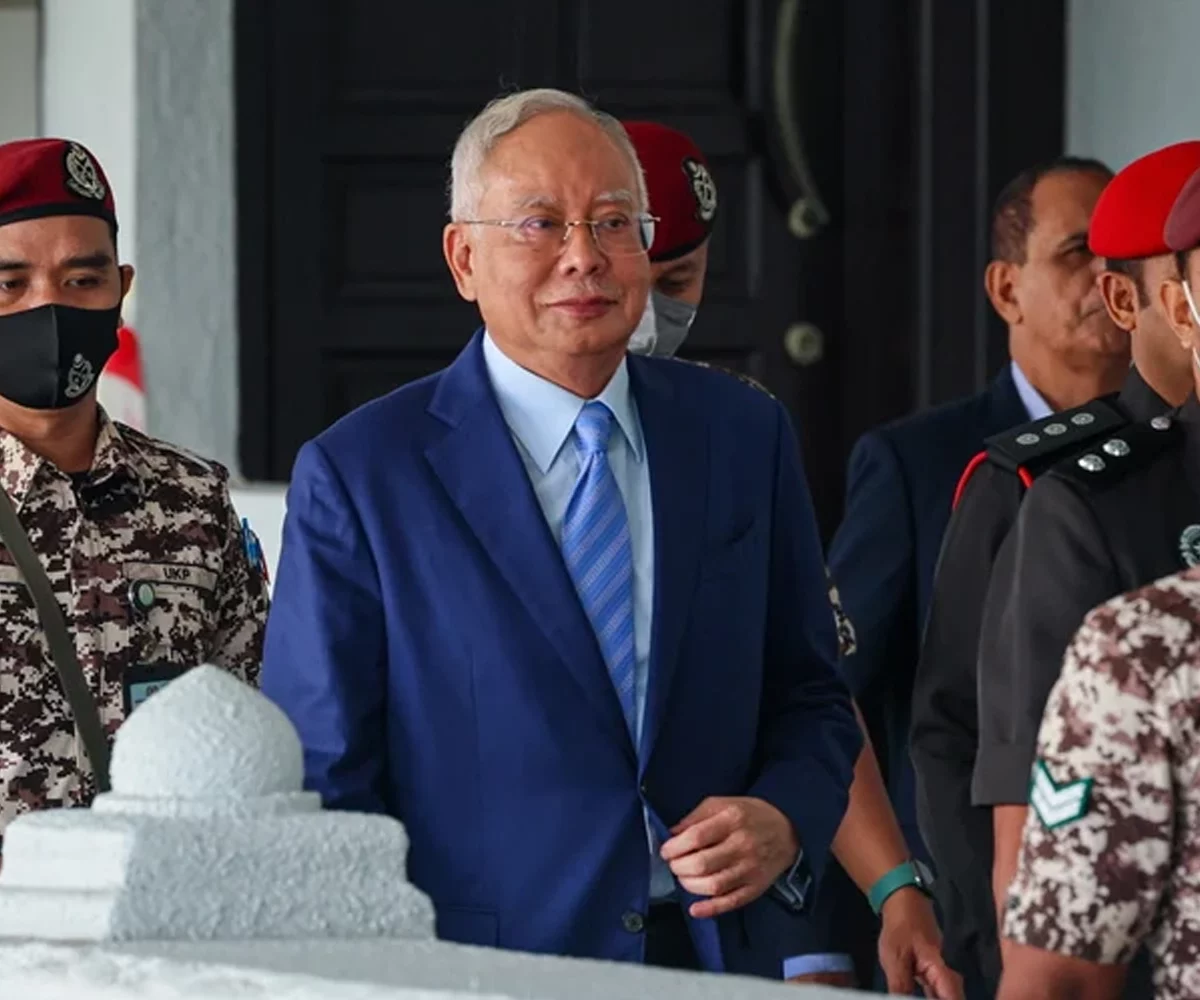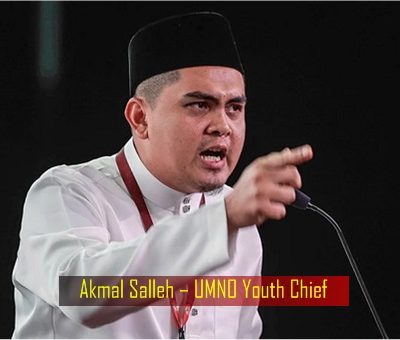Former prime minister Najib Abdul Razak claimed that an addendum in a recent royal pardon allowed him to serve the remaining of his six-year jail term under house arrest.
Najib claimed that the former Yang di-Pertuan Agong, Al-Sultan Abdullah Sultan Ahmad Shah of Pahang, had issued a “supplementary decree” during the Federal Territories Pardons Board meeting on Jan 29, one day before the end of his reign as monarch.
Jailed former premier Najib Razak has mounted a legal challenge to force the Malaysian government to allow him to serve the remainder of his sentence under house arrest. It’s set to become a political hot potato for Prime Minister Anwar Ibrahim’s administration, and carries serious ramifications for the monarchy and the country’s judiciary.
Jailed former premier Najib Razak’s audacious legal gambit to seek house arrest for the remainder of his prison term has put the government in a bind and could shake up Malaysian politics.
Just two months ago, his 12-year jail sentence for corruption in the 1Malaysia Development Bhd (1MDB) fiasco was halved by a pardons board chaired by Malaysia’s then-king, Al-Sultan Abdullah Ri’ayatuddin Al-Mustafa Billah Shah. His fine of RM210 million (US$44.3 million) was also cut to RM50 million.
This week, he filed a judicial review application in the High Court to force the government to acknowledge the existence of a document that he claims allows him to serve the remainder of his prison term under house arrest.
According to court filings obtained by CNA, the 70-year-old Najib claimed he had received clear information that in addition to the main clemency order by Malaysia’s Pardons Board, the then-king also issued an addendum order stipulating that he be allowed “to serve the reduced sentence of his imprisonment under the condition of home arrest, instead of confinement in Kajang Prison”.
HOUSE ARREST NOT DISCUSSED BY PARDONS BOARD
The Malaysian government has yet to come out with an official statement on how it intends to deal with Najib’s latest court challenge.
Attorney-General Ahmad Terrirudin Mohd Saleh did not respond to a request for comment from CNA.
A spokesperson in Prime Minister Anwar Ibrahim’s office said it “will not be making any statement on this matter”, while Home Minister Saifuddin Nasution Ismail told Malaysian media on Thursday (Apr 4) that he knew nothing about a supplementary order.
Senior government officials, who spoke on condition of anonymity, acknowledged that Sultan Abdullah had issued a supplementary order with regards to the house arrest before he completed his five-year reign in end-January.
Johor’s Sultan Ibrahim Sultan Iskandar took over as king on Jan 31. Under Malaysia’s unique constitutional monarchy, the country’s nine Sultans take turns to serve as king under five-year terms.
The final word on the pardon of convicted criminals rests with the sovereign.
But the officials noted that the Attorney-General’s office has raised objections on the matter to the Anwar administration because the issue of house arrest for Najib was not discussed during the meeting on Jan 29 by the six-member Pardons Board. The officials declined to elaborate.
Najib’s latest legal challenge is set to be heard on April 17 by a Malaysian High Court, which will decide whether to allow his bid for a judicial review.
“It is a matter that needs to be litigated,” said veteran lawyer Zaid Ibrahim, who had also previously served as a member of Najib’s defence team. “I belong to the old school; the pardon is the king’s alone to confer.”
The case will surely be tracked closely.
Najib, who was Malaysia’s premier for nine years until May 2018 and its first PM to be imprisoned, began serving his jail term in August 2022 after failing in two appeals to overturn his conviction by a Malaysian High Court two years earlier.
The clemency he secured in late January did not go down well with ordinary Malaysians.
Questions were raised as to why Najib, who had served less than two years of his lengthy sentence, had become eligible for a royal pardon – and at a time when he continues to be on trial for other corruption charges related to the 1MDB debacle.
Public debate, however, was muted because of the country’s tough sedition laws.
But this week’s bombshell that Malaysia’s most prominent convict could be allowed to serve his jail sentence under house arrest could raise serious questions over the country’s opaque pardon system and stir criticism that two sets of laws exist for convicted persons in Malaysia.
ANWAR GOVERNMENT IN AWKWARD CORNER
Malaysia’s government only recently agreed in principle to a new initiative called Licensed Prisoner Release, aimed at reducing congestion in prisons and promoting community correction.
It would let prisoners with jail terms of four years or less serve home detention, Home Minister Saifuddin said last month. The initiative could also include prisoners who have chronic illnesses or disabilities, as well as those who are senior citizens or pregnant women.
At an event in Ipoh, Mr Saifuddin had labelled reports questioning whether Najib would be allowed home detention “mischievous”, news outlet The Star reported.
In any case, Najib’s latest legal challenge has pushed the Anwar administration into an awkward corner.
A government challenge on Najib’s bid for house arrest would be viewed as tantamount to challenging the unfettered role of the country’s constitutional monarchy.
What’s more, it could also upset the delicate relations with the long-established United Malays National Organisation (UMNO), which is a crucial component in Mr Anwar’s coalition government.
Najib continues to wield significant influence in the party that he headed while he was Malaysia’s premier for nine years, and government opposition to the house arrest gambit could set the stage for a revolt among certain factions in UMNO against the Anwar administration.
“At this point, Anwar’s position is that he is against the house arrest for Najib,” said one government official, noting that the international reputation of the government and the country’s justice system would immediately be undermined.
Source : Channel News Asia
Najib claims in court application former Agong decreed that he be allowed to serve time at home
Najib is seeking a copy of the speculated addendum dated Jan 29, 2024 which, if it exists, would compel the government to release him from Kajang Prison to his known residence here. The application was filed by his solicitor Messrs Shafee & Co on Monday.
Also named as respondents in the application are the Prisons Department commissioner general, the home minister, the director general of the law division of the Prime Minister’s Department, and the Attorney General’s Chambers.
The hours spent waiting for a flight — after checking in but before boarding — is often seen as a drag or a waste of time. However, chances are those who think that way are not familiar with Malaysia’s aviation hubs.Continue Reading
Najib is currently serving a six-year jail sentence and a RM50 million fine since Aug 22, 2022, which were reduced by the former King from 12 years in jail and a RM210 million fine. He received the partial royal pardon last month.
He is now seeking a mandamus order to compel the production of the original copy of the main pardon order, along with the rumoured appendix by the 16th Yang di-Pertuan Agong as well as costs of the action.
Royal pardon matters, however, are protected by the Official Secrets Act.
In his affidavit in support of leave from the court to consider the application, Najib claimed that he received information that Al-Sultan Abdullah Ri’ayatuddin Al-Mustafa Billah Shah had issued an addendum order that he serve the reduced sentence of imprisonment under condition of “home arrest” instead of confinement in the Kajang Prison.
In judicial review applications, a petitioner has to obtain leave, or permission, from the court before the merits of the application are heard.
Messrs Shafee & Co was then instructed to confirm the existence of the addendum via a letter to the attorney general of Malaysia on Feb 14 this year, which was also copied to Prime Minister Datuk Seri Anwar Ibrahim, and Deputy Prime Minister Datuk Seri Dr Ahmad Zahid Hamidi.
Letters to former and present Kings
Further letters were sent to the home affairs minister, the Pardons Board, and the minister in charge of law and institutional reforms, and other respondents over the existence and lack of enforcement of the King’s order between March 22 and 29, 2024.
None of the parties responded, according to Najib, and the failure to provide answers about the existence of the addendum as well as their inaction was considered as irrational, unreasonable, illegal and arbitrary, and breached the Federal Constitution, in particular Article 42, which concerns the Yang di-Pertuan Agong’s prerogative to grant pardons.
“This is unfettered discretion, unchallengeable in any court of law by any process, as this is the prerogative of the 16th Yang di-Pertuan Agong,” the former PM said, stressing that the King’s orders are not merely administrative but reflections of the legal and moral authority vested in the monarchy.
“Therefore, the respondents’ disregard of my request constitutes a direct intrusion of my basic right as provided in the Constitution and the laws generally,” the former Pekan Member of Parliament said. “Over and above this, the defiance of the respondents constitutes a direct contempt of the institution of His Majesty.”
He said that based on general principles, the court ought to compel the respondents to confirm, execute and provide the original version or a copy of the main order and the alleged addendum order.
In Najib’s additional affidavit in support, the former PM said he had written to Al-Sultan Abdullah and the current King of Malaysia, His Majesty Sultan Ibrahim, in a letter dated March 25 this year of his intention to file a judicial review application.
However, Najib said he is not producing this letter in the affidavit in support due to confidentiality and propriety.
The Coverage Malaysia






